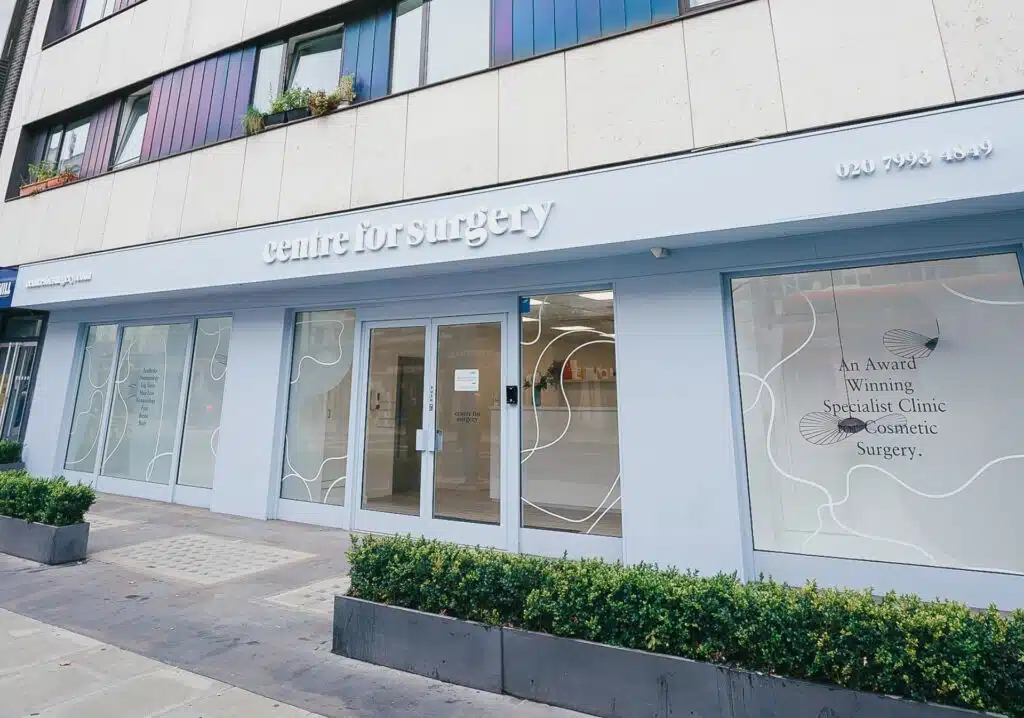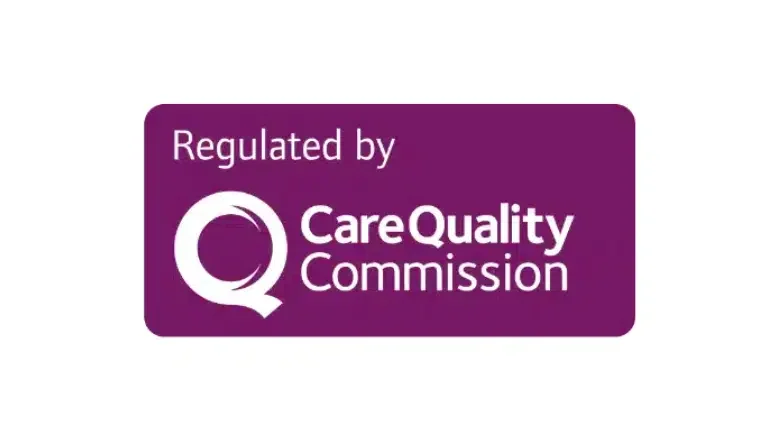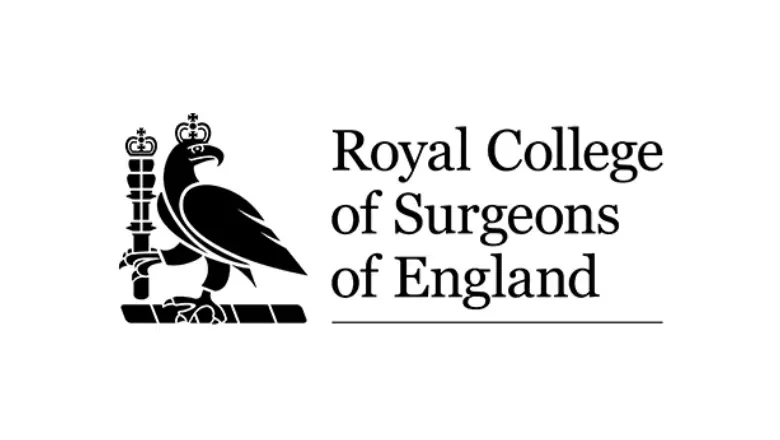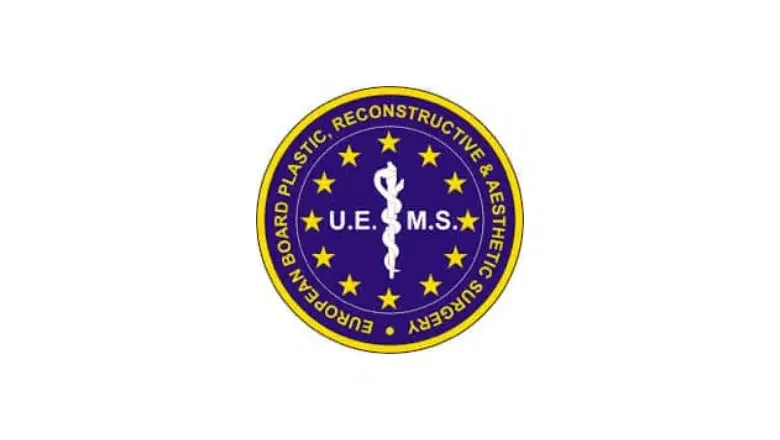Enhancing Recovery Through Optimal Sleep Following Body Lift Surgery
Sleep plays a critical role in the recovery phase following a body lift surgery. Its significance in the healing process is profound and often underrated. During sleep, our bodies enter a transformative phase, transitioning from the hustle and bustle of daily activities to a state focused on healing and rejuvenation. This shift isn’t merely about resting or conserving energy; it’s an intricate and dynamic process. Our bodies dedicate this time to repairing and regenerating tissues, bolstering the immune system, and revitalising both physical and mental health.
RELATED: How to Sleep After Cosmetic Surgery
At Centre for Surgery, we recognise the importance of quality sleep in postoperative care. In this article, we will delve into the specifics of body lift surgery and provide valuable insights on how to achieve restful and restorative sleep post-surgery. Understanding the mechanics of sleep and how it contributes to a smoother, quicker recovery can be a game-changer for patients undergoing this transformative procedure. We aim to offer guidance that enhances your recovery and improves your overall well-being during this critical period.
RELATED: Body Lift Surgery FAQs
Lower Body Lift Surgery: Reshaping and Toning for a Renewed You
Lower body lift surgery is an intricate and transformative procedure designed to reshape and tone the lower torso and upper legs. This surgery is especially beneficial for individuals who have undergone substantial weight loss and are looking to address excess, sagging skin that often remains as a result. The procedure typically encompasses several key areas to achieve a more contoured and aesthetically pleasing appearance.
Abdominal Area
This surgery component closely aligns with an abdominoplasty or tummy tuck. It involves the removal of excess skin and fat from the abdomen. Moreover, it includes the tightening of the abdominal muscles, which not only improves the shape but also enhances the overall structure and firmness of the abdomen.
Buttocks and Thighs
The surgery extends to lifting and tightening the buttocks and outer thighs. This aspect is crucial for improving the overall contour of these areas. It effectively reduces sagging skin, resulting in a more lifted and toned appearance of the buttocks and thighs.
Lower Back
A lower body lift also addresses the lower back area. By removing excess skin from this region, the procedure helps smooth and contour the waistline and back. This step is significant for achieving a more harmonious and balanced silhouette.
Hip Area
The hip area is another focal point of this surgery. The lift includes the removal of excess skin around the hips, thereby creating a more defined and toned appearance. This enhancement contributes to the overall goal of achieving a proportional and aesthetically pleasing body shape.
RELATED: Body Lift Surgery After Massive Weight Loss – What to Expect
Understanding the Healing Power of Sleep in Post-Surgical Recovery
Sleep’s role in the body’s healing process, particularly after surgeries like a body lift, is multifaceted and profound. During sleep, especially in its deeper stages, the body enters a state of heightened biological activity. This includes the release of growth hormones, which are essential for tissue repair and muscle growth. Such hormonal activity is vital following body lift surgery, as it directly contributes to restoring and strengthening the body’s tissues.
Additionally, the increased blood flow to muscles during sleep is another critical factor in tissue growth and repair. This enhanced circulation delivers essential nutrients and oxygen to the areas in need, facilitating efficient healing. The role of sleep in nourishing and repairing the body at a cellular level cannot be overstated.
Beyond tissue repair, sleep significantly bolsters the immune system, which is particularly crucial in post-operative recovery. Enhanced immune function during sleep aids the body in warding off potential infections and responding effectively to inflammation, which is a common consequence of surgical procedures. The production of specific cytokines during sleep, which are necessary for combating infection and inflammation, underscores the body’s inherent healing mechanisms at work during rest.
Moreover, sleep plays a pivotal role in reducing inflammation and swelling, common responses of the body post-surgery. While inflammation is a part of the natural healing process, excessive inflammation can lead to discomfort and prolong recovery. Sleep helps in moderating the body’s inflammatory responses, thus aiding in a more comfortable and quicker recovery. The regulation of stress hormones during sleep also contributes to controlling inflammation. A lack of sleep or chronic sleep disruption can lead to increased levels of stress hormones, which can exacerbate inflammation and hinder the healing process.
RELATED: Upper Body Lift
The Impact of Inadequate Sleep on Recovery After Body Lift Surgery: A Detailed Insight
The importance of adequate sleep during the recovery phase after a body lift surgery cannot be overstated. Insufficient sleep can significantly impede the healing process, with effects that go far beyond simple fatigue. These impacts have substantial consequences on the overall recovery journey:
Delays in Wound Healing
One of the critical consequences of sleep deprivation is its negative impact on wound healing. Inadequate sleep directly results in the body’s reduced production of growth hormones and cytokines, which are vital for tissue repair and fighting inflammation. This reduction hampers the body’s natural ability to heal surgical wounds effectively, potentially leading to prolonged recovery times.
Increased Susceptibility to Infections
A weakened immune response, a direct outcome of insufficient sleep, can heighten the risk of post-surgical infections. This is a significant concern as infections can lead to various complications, potentially extending the recovery period and necessitating additional medical interventions in more severe cases. The body’s natural defense mechanisms are less effective when deprived of the restorative benefits of sleep, making it more vulnerable to external threats.
Prolonged Recovery Period
The lack of quality, restful sleep can lead to an extended recovery duration. This prolonged recovery is not just about the physical aspects, like the slowing of wound healing or increased risk of infections, but also encompasses the exacerbation of pain and discomfort. Moreover, it can delay the patient’s ability to resume normal activities, affecting their daily life and well-being.
Sleep Postures for Optimal Healing After Body Lift Surgery
Choosing the correct sleeping position following body lift surgery is crucial, not only for comfort but also for effective healing and recovery. Understanding the best ways to position yourself during sleep can significantly impact your post-surgical experience.
The Importance of Sleeping on Your Back:
- Pressure Avoidance: This position is highly recommended as it prevents direct pressure on the surgically altered areas. Avoiding pressure is vital as it can disrupt the healing process, cause pain, and potentially impact the surgery’s results.
- Weight Distribution: Back-sleeping ensures an even distribution of your body weight. This uniformity is important to avoid putting undue strain on any healing part of your body, which could otherwise lead to complications or discomfort.
- Posture Maintenance: A good posture during sleep is beneficial. Lying on your back naturally aligns your spine, neck, and head, which helps in reducing the risk of developing aches and pains in these areas.
Elevating Your Upper Body:
- Reducing Swelling: Elevation is crucial in managing swelling. Post-surgery, the body tends to swell at the affected site. Elevating the upper body helps in draining fluids away from the surgical area, thus reducing swelling and discomfort.
- Improved Comfort and Breathing: For surgeries involving the abdominal area, elevating the upper body can make breathing more comfortable, which is crucial for a restful sleep.
- Using Pillows or a Wedge Pillow: While regular pillows can be used for elevation, a wedge pillow is often more effective. These pillows provide a gradual incline, offering more stable and comfortable support than stacking multiple pillows.
Additional Tips for Effective Sleep Positions:
- Pillow Placement: Experiment with pillow placement for maximum comfort. Placing a pillow under your knees, for example, can relieve lower back pressure when lying on your back.
- Avoid Twisting Movements: Be mindful when getting into bed to avoid twisting movements, particularly at the waist. Use your arms for support as you gently lower yourself onto the bed to minimise stress on the healing areas.
Essential Strategies for Improving Sleep After Body Lift Surgery
Enhancing sleep quality is crucial for recovery, especially after undergoing a body lift surgery. Adopting effective sleep practices can greatly aid in the healing process. Here are some comprehensive approaches to help ensure restful sleep during this vital recovery period:
Incorporating Relaxation Techniques Before Bed:
- Engaging in calming activities like reading, listening to tranquil music, or practising deep breathing can be highly beneficial. These activities help in signalling your body that it’s time to relax and prepare for sleep.
- Limit exposure to screens such as phones, tablets, and televisions before bedtime. The blue light from these devices can interfere with your natural sleep cycle.
Developing a Consistent Sleep Routine:
- Establishing a routine where you go to sleep and wake up at the same times daily, including on weekends, is vital. This consistency aids in synchronizing your internal body clock, facilitating easier sleep onset and wakefulness.
- Be cautious with napping, particularly during recovery. Short naps can be beneficial, but longer or late-afternoon naps may disrupt your nighttime sleep patterns.
Maintaining a Comfortable Bedroom Temperature:
-
- Most people find they sleep best in a cool environment. Experiment to find the optimal temperature for your comfort, typically around 18 degrees Celsius.
Crafting a Restful Sleeping Environment:
- It’s important to transform your bedroom into a tranquil, serene, and dark retreat. Consider using blackout curtains or eye masks to eliminate light, and if external noise is a disturbance, consider using earplugs or a sound machine.
- Ensure that your mattress and pillows are comfortable. Post-operative needs might necessitate extra pillows to offer the right support and help maintain a safe and comfortable sleeping posture.
Being Mindful of Diet and Fluid Intake:
- It’s advisable to avoid heavy or large meals a few hours before bedtime. Spicy or acidic foods may cause discomfort and heartburn, potentially keeping you awake.
- Moderating intake of caffeine and alcohol is essential, as both can disrupt your sleep pattern. While alcohol might initially aid in falling asleep, it often leads to disrupted sleep later in the night.
Managing Stress and Anxiety:
-
- Practices such as mindfulness and meditation can effectively calm an anxious mind, aiding in easier sleep onset.
- Writing down your thoughts in a journal before bed can be a helpful way to clear your mind and ease into sleep.
Managing Pain and Discomfort Effectively:
- Adhering to your surgeon’s advice on pain management is crucial. Pain that is not well-managed can be a significant sleep disruptor.
- Consider using specialised pillows or mattress toppers that offer additional support and comfort during recovery.
Staying Lightly Active During the Day:
- Engage in light activities like walking, as recommended by your surgeon. This can improve your overall sleep quality, but avoid vigorous exercise close to bedtime as it can be overly stimulating.
FAQs about Sleeping After Body Lift Surgery
What Is the Optimal Sleeping Position Following Body Lift Surgery?
After body lift surgery, the most beneficial sleeping position is lying on your back, with the upper part raised slightly. This can be achieved with additional pillows or a specialised wedge pillow. Lying in this way helps lessen swelling, reduces pressure on the area where the surgery was performed, and promotes proper blood flow, all of which are crucial for healing. It’s advisable to avoid sleeping on your stomach or side, as these postures can apply pressure on the surgical sites, leading to discomfort and potentially hindering the healing process.
How Long Should the Recommended Sleeping Position Be Maintained Post-Surgery?
Typically, it’s recommended that you sleep on your back for 2 to 6 weeks after your operation. This duration, however, may vary based on your surgeon’s advice and the specific details of your procedure. Adhering to your surgeon’s instructions is imperative, as they are tailored to your individual surgical procedure and recovery needs.
Can Regular Pillows Be Used for Body Support While Sleeping Post-Surgery?
Yes, you can use regular pillows for support after your surgery, but it’s often more advantageous to opt for specialised support pillows. Wedge pillows, for instance, are excellent for elevating your upper body. You can also place additional pillows under your knees to ease the pressure on your lower back. This approach is not just about comfort; it’s also about maintaining an ideal position to facilitate your recovery.
Is Difficulty Sleeping Common After Body Lift Surgery?
Experiencing some trouble sleeping after body lift surgery is quite normal. Factors such as discomfort, pain, and the necessity of maintaining a certain sleeping position can disrupt your usual sleep patterns. To enhance the quality of your sleep, it’s important to stick to your pain management plan and create a conducive sleeping environment. If you continue to have difficulties sleeping, it’s wise to seek further advice from the Centre for Surgery.
What Products or Tips Can Assist in Improving Sleep Quality Post-Surgery?
To improve sleep quality following your surgery, consider using a high-quality mattress and pillows explicitly designed for post-surgical care. Creating an environment conducive to sleep – which includes keeping the room dark, cool, and quiet – can also be beneficial. Additionally, avoiding caffeine and heavy meals before sleep, maintaining a consistent sleep routine, and engaging in relaxing pre-bedtime activities such as reading or listening to calm music can greatly aid in achieving better sleep quality.
Body Lift Surgery at Centre for Surgery
At Centre for Surgery, we specialise in providing transformative body lift surgeries designed to reshape and rejuvenate your appearance. Our clinic, located in the heart of London, is renowned for its state-of-the-art facilities and commitment to patient care and satisfaction. Our experienced team of surgeons is dedicated to creating personalised treatment plans that meet the unique needs of each patient.
Patient Testimonials
- Emma’s Journey: “After my significant weight loss, I was left with excess skin that affected my confidence. The team at Centre for Surgery was compassionate and professional. My body lift surgery was a life-changing experience, and the results have been nothing short of amazing. I am now more confident and comfortable in my skin.”
- James’ Transformation: “Choosing Centre for Surgery for my body lift was the best decision I’ve ever made. The care I received from the initial consultation to the post-operative follow-ups was exemplary. The surgery has given me a new lease on life, and I couldn’t be happier with the outcome.”
- Sophia’s Experience: “The professionalism and expertise at Centre for Surgery are unparalleled. The staff made me feel at ease throughout the entire process, and the results of my body lift surgery have exceeded my expectations. I am truly grateful for the difference they’ve made in my life.”
Booking a Consultation
To book a consultation and start your journey towards a renewed self, contact us at:
- Phone: 0207 993 4849
- Email: contact@centreforsurgery.com
- Address: 95-97 Baker Street, London W1U 6RN
Additional Resources
For more information about our services and what makes us stand out:
- About Us: Explore our ‘About Us’ page here for an in-depth look at our clinic, our philosophy, and what sets us apart in plastic surgery.
- Finance Options: We understand that financing your surgery is an important consideration. Learn about our flexible finance options, including 0% APR with Chrysalis Finance, by visiting this link.
- Plastic Surgery Blog: For additional insights and information about body lift surgery and other procedures, check out our comprehensive plastic surgery blog.
- Clinic FAQs: Have questions? Our FAQs page provides answers to common queries about our procedures and patient care.
- Baker Street Clinic: Discover more about our Baker Street clinic, a prime location for your surgical needs, by visiting this link.
At Centre for Surgery, we are dedicated to helping you achieve your aesthetic goals in a safe and professional environment. Our expert team is here to guide you every step of the way. Contact us today to begin your transformation journey.











